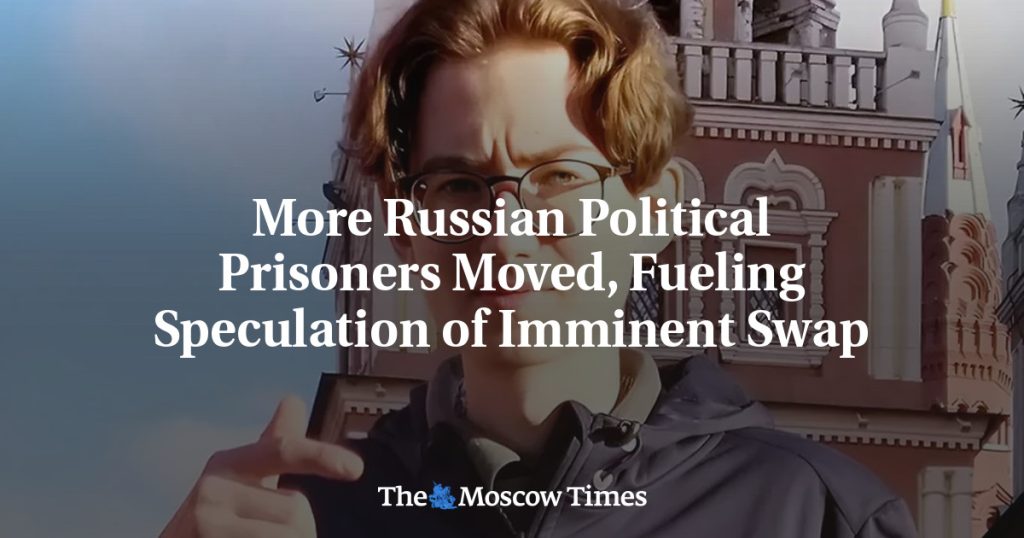Two more Russian political prisoners have been moved to unknown locations, causing concern among lawyers and relatives. Lilia Chanysheva, Ksenia Fadeyeva, Oleg Orlov, and anti-war artist Alexandra Skochilenko have all reportedly been transferred from their jail cells in recent days, with their whereabouts unknown. Additionally, opposition figure and former Moscow city councilman Ilya Yashin and 19-year-old Kevin Lik have also been moved from the facilities where they were being held. Yashin was given an eight-and-a-half-year prison sentence for condemning Russia’s invasion of Ukraine, while Lik, a dual Russian-German citizen, was arrested for treason for allegedly sending photos of Russian soldiers to a foreign state.
The sudden transfer of these political prisoners has sparked speculation about a potential prison exchange between Moscow and the West. Political observers are suggesting that the scale and timing of the transfers may be indicators that Moscow is preparing for such an exchange with Western governments. Some believe that a large-scale exchange involving both American and Russian prisoners may be imminent. However, Yashin has previously stated that he does not want to be part of any prison exchange. The transfers come just after Wall Street Journal reporter Evan Gershkovich and Russian-American journalist Alsu Kurmasheva were sentenced to jail in Russia, leading to speculation that a deal involving them and other prisoners may be in the works.
The sudden nature of the transfers, combined with previous speculation about a potential prisoner exchange, has raised questions about the motives behind these movements. While it is not immediately clear if the transfers are connected or part of a larger strategy, the timing and scale have caught the attention of political observers. The possibility of a prisoner swap between Russia and the West, involving high-profile dissidents and journalists, is being considered. This speculation comes amid ongoing tensions between Russia and Western governments, particularly in the wake of Russia’s invasion of Ukraine and resulting international sanctions.
Lawyers and supporters of the political prisoners have expressed concern over the lack of information regarding their whereabouts following the transfers. Without clear communication from prison authorities or government officials, families and legal representatives are left in the dark about the conditions and locations of the detainees. The uncertainty surrounding the fate of these individuals has heightened fears about their well-being and safety while in custody. Efforts to gather information and advocate for the rights of the prisoners are ongoing, as supporters seek to shed light on their cases and push for transparency regarding their treatment.
The potential exchange of prisoners between Russia and the West has drawn attention to the broader geopolitical dynamics at play in the region. With tensions between Russia and Western countries mounting, the fate of political prisoners has become a focal point of international relations. The actions taken by both governments, including the sudden transfers of detainees and the silence surrounding potential negotiations, have raised concerns about the protection of human rights and the rule of law. As speculation continues to swirl around the possibility of a prisoner swap, the fate of these individuals remains uncertain, highlighting the complex challenges facing both Russian authorities and Western governments in addressing these issues.















